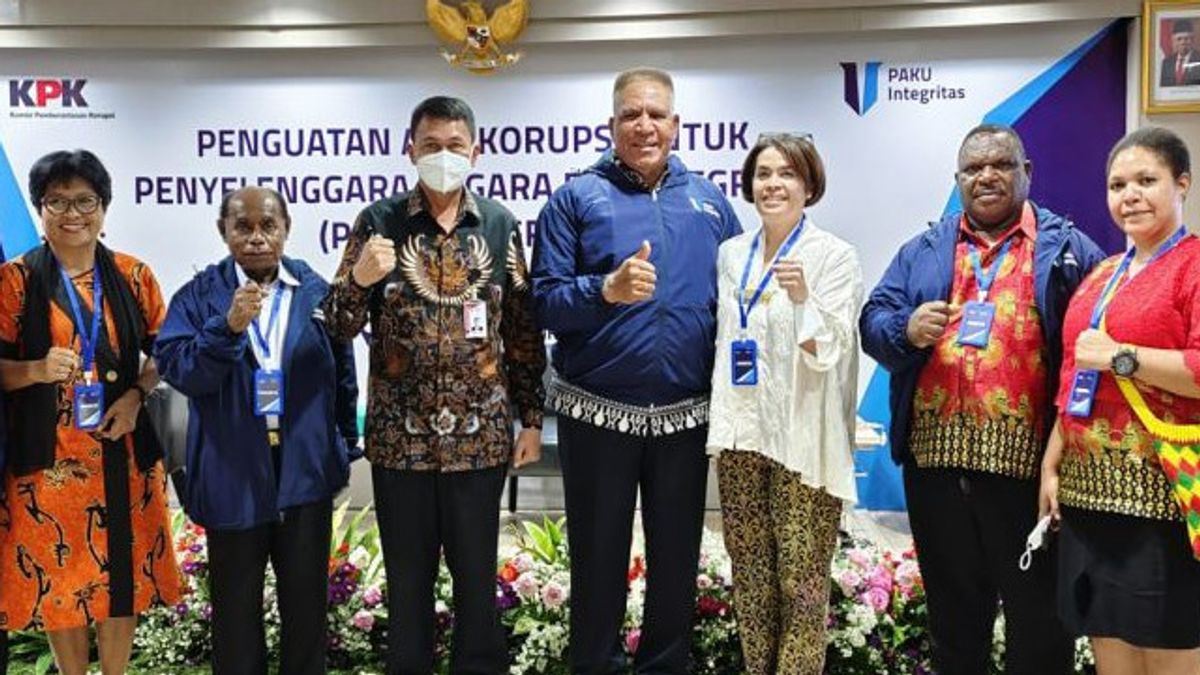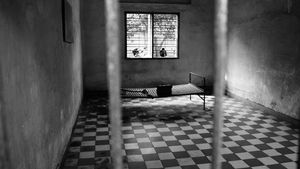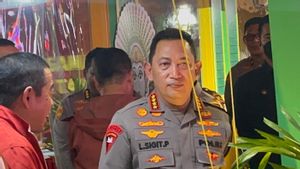Acting Governor of West Papua Paulus Waterpauw acknowledged the importance of the presence of the Corruption Eradication Commission (KPK) in the regions to uphold the integrity of state administrators so as not to be provoked into corrupt practices, collusion, and nepotism (KKN).
As the acting central government in the regions, Paulus Waterpauw needs assistance from the KPK leadership to be able to provide briefing to state officials to have high integrity in carrying out their duties and services in serving the community.
"I (the governor's official) entered already in the middle of the road. There is a musrenbang that has been regulated from the start. In essence, the governor's acting policy is accelerating from the central government to the regions," Waterpauw said when contacted from Manokwari, Thursday, November 3, quoted by Antara.
On Wednesday (2/11), Waterpauw with his wife, West Papua Regional Secretary Nathaniel Mandacan, Chairman of the West Papua DPRP Orgenes Wonggor and his wife participated in the Anti-Corruption Strengthening activity for State Officials with Integrity (Paku Integrity) of the Regional Government in 2022 in the Bhineka Tunggal Ika Meeting Room, KPK's Red and White Building, Jakarta.
The Integrity Paku Program consists of three separate activities, namely executive briefing in the form of strengthening anti-corruption for state administrators and partners, providing anti-corruption for state administrators (husbands/wife), and training for anti-corruption strengthening for state administrators with integrity.
He explained that the purpose of the Paku Integrity program was to increase awareness of anti-corruption by state officials in order to avoid corrupt behavior, collusion and nepotism (KKN).
Through these activities, he said, state officials have high integrity and a strong commitment in efforts to eradicate corruption in their respective agencies.
Waterpauw emphasized that all ranks in West Papua, from regional heads, DPRD, to the West Papua People's Assembly (MRPB), fully support the Integrity Paku program.
If all state apparatus have high integrity, from the center to the regions, he is optimistic that Indonesia will be free from the practice of KKN.
"If all one command is between the center and the regions, integrity of the state can be well imprinted," he said.
Mrs. Roma Megawanti Waterpauw, who also participated in the activity, welcomed the activities organized by the KPK.
"I appreciate and thank the KPK very much because we wives are included in this activity so we can know that later the KPK will come to the area, whether monitoring or supervision activities, we can remind gentlemen," he said.
Deputy Chairperson of the KPK, Nawawi Pomolango, during the Anti-Corruption Strengthening activity for State Administrators, hopes that regional leaders will make the KPK a partner in regional development.
According to him, the law mandates the KPK to carry out six main tasks, namely the task of preventing corrupt practices. In addition, coordinating with relevant agencies that carry out public services.
In addition, the KPK carries out its task of supervising the state administration system through monitoring activities and conducting studies on policies of government products, both at the central and regional levels.
"KPK also supervises agencies that eradicate corruption. We often do this with other law enforcement friends, both the police and the prosecutor's office, who handle it running on the spot. This is to handle case handling for legal certainty," explained Nawawi.
Furthermore, the other task of the KPK is to carry out investigations, investigations, prosecutions, or known as prosecution tasks.
The KPK's last task, said Nawawi, is to carry out court decisions that have legal force.
The English, Chinese, Japanese, Arabic, and French versions are automatically generated by the AI. So there may still be inaccuracies in translating, please always see Indonesian as our main language. (system supported by DigitalSiber.id)












